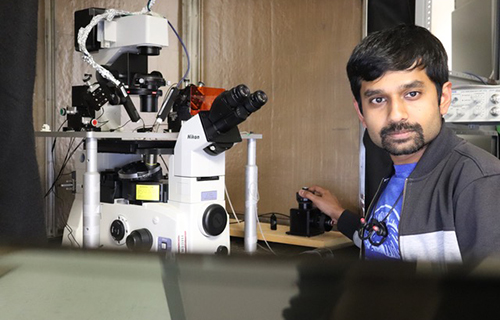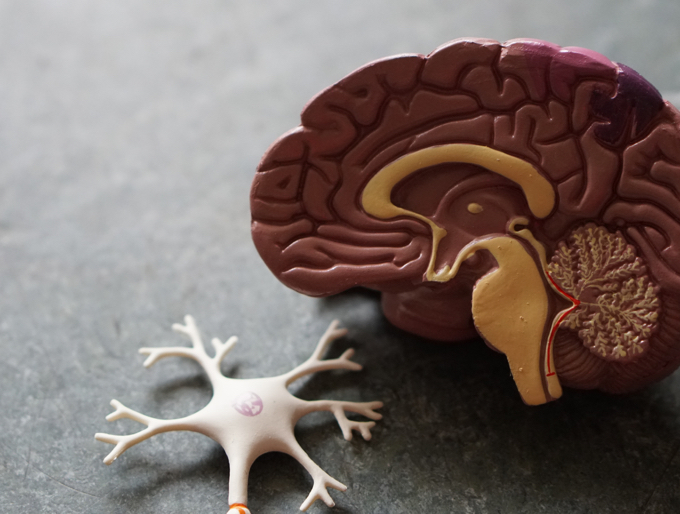Biography
Adithya was born in California and lived all over the country throughout his childhood. His father, a computer engineer, worked for different companies, which meant frequent moves for the family. From a young age, Adithya focused on academics — especially computer science — as a skill he could bring with him wherever he went.
Exceptional teachers and mentors nurtured this love of science and encouraged him to pursue his interests outside of the classroom. One memorable example occurred during 8th grade when Adithya ran an experiment for the science fair. He wanted to measure the effect of caffeine on blood glucose and blood pressure, so he enlisted his entire street to help. Every morning, he would bring his neighbors a cup of coffee, then measure their vitals every 30 minutes.
After high school graduation, Adithya enrolled at University of Florida. His undergraduate trajectory wasn’t a direct one. A few years into his studies, his health began to decline. After seeing a round of specialists, his symptoms were still undiagnosed and he struggled to focus on his work. At the urging of caring mentors, he decided to take a leave of absence from UF.
After struggling to find a diagnosis, Adithya leaned into his natural inclination toward science and started keeping detailed daily notes on his symptoms. This process eventually led him to self-diagnose an autoimmune disease, and he reached out to a specialist in Gainesville who confirmed his diagnosis and started him on the correct treatment.

Within 18 months, he was back on his feet, empowered and ready to restart his studies. He enrolled at the University of Florida and graduated with an interdisciplinary degree in neuroscience. He successfully defended his PhD thesis in October 2022.
Currently, he is a graduate research assistant at the Khoshbouei Lab, in the University of Florida College of Medicine, where he dedicates time researching markers of dopamine signaling in blood-borne immune cells.
Research Focus
Challenges
Parkinson's disease symptoms, including shakiness and difficulty walking, usually begin gradually and worsen over time. The degenerative nature of the disease is coupled with the fact that many Parkinson’s medications become less effective the longer patients take them.
Every few years, patients have to switch to new medications, which often have harsher side effects. In addition, many of the medications that are used to treat Parkinson’s are only able to reduce symptoms; they do not decrease the rate of disease progression or neuron loss. In addition, many of these medications produce many side effects, causing them to affect many different systems and parts of the body (not just those that need treatment).
Because of these realities, much of the research surrounding Parkinson’s disease looks to find more suitable medications to help with symptoms, to help patients for longer periods.
A second major concern in Parkinson’s treatment is diagnoses. Only about 75% of Parkinson’s diagnoses are accurate. One common diagnostic test occurs when the doctor examines a patient’s movements as they walk up and down the hallway, examines their movements, and then determines whether or not the patient needs medication. If the patient improves, the assumption is Parkinson’s disease.
Focus and Priorities
Adithya’s research focuses on dopamine signaling in the brain and its correlation to neurodegenerative diseases including Parkinson’s and Alzheimer’s disease. Dopamine is a neurotransmitter that helps regulate movement, learning, mood, and emotional responses.
Two distinct regions of the brain contain neurons that produce dopamine. These neurons are integral to the regulation of movement and intentional movement in the body.
Adithya’s research analyzes the specific functions of dopamine and how it affects the immune system.
His team looks at why immune cells need dopamine to fight off neurodegenerative diseases, putting particular focus on cells called monocytes that contain the entire set of proteins necessary to make, store, and release dopamine in the body.
The research Adithya’s team has already improved the accuracy of diagnostic tools. Through their research on dopamine signaling, they have created a blood test that can diagnose a patient with Parkinson’s disease with 96% accuracy. He hopes to turn this into a certified blood test that can eventually be used by the doctors at the University of Florida and beyond.

Benefits
Someday, Adithya hopes this research will lead to new ways to treat patients with neurodegeneration. His goal is to find treatments much earlier in the progression of the disease, before the immune system begins to deteriorate and cause a reduction in dopamine neurons. Some cancer treatments, for example, rely on boosting the body’s natural immune response. Adithya hopes to apply these same principles to Parkinson’s, employing the body’s immune system to fight the degeneration caused by the disease.
Karen Toffler Charitable Trust Investment
The Investment from the Karen Toffler Charitable Trust will enable two primary goals. The first is related to the diagnostic test his team has created. Funding will support material and transportation costs to keep the project moving forward, with the goal of making the blood test available to help doctors more accurately diagnose Parkinson’s disease. Additionally, funding will help Adithya study dopamine in the immune system. Because this field of Parkinson’s study is in its early stage, funding from more traditional sources is more difficult to obtain.